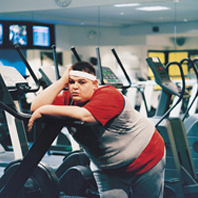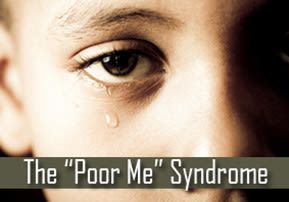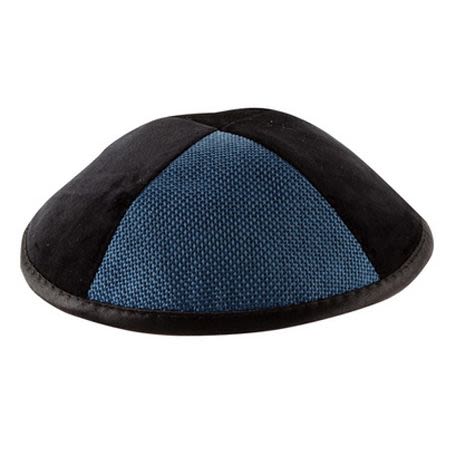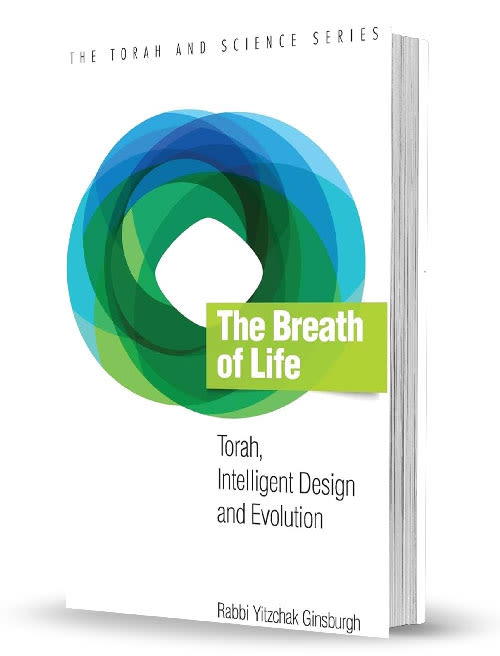Until very, very recently, my yetzer hara has been having a field day. The more I’ve been praying for happiness, the more miserable I’ve been feeling. The more I’ve been praying for ahavat Yisrael, the more awkward my social encounters have been, and the more people I haven’t liked very much. The more I’ve been praying to have more kids, the less likely it appears to be that it’s ever going to happen. The more I’ve been praying for a purpose in life, the less idea I have of what to do with myself, etc etc etc. You get the idea.
The turning point came a couple of weeks ago, when I attended a social event where all anyone seemed to be talking about was their kids, their forthcoming pregnancies, and the difficulty they had finding decent underwear in Israel.
I felt so out of it. I felt so miserable. I stayed for half an hour, and came home and cried my eyes out. Poor me! I don’t have six kids. Poor me! I have no trouble finding socks, underwear or whatever I need, whenever I need it. Poor me! I have nothing to talk to these people about.
I felt stuck in an enormous rut – was I ever going to feel happy and ‘normal’ again? Why weren’t my prayers to feel happier working? If even my prayers for that weren’t working, how was I ever going to get to a point where I actually could start enjoying my life again?
And that, dear reader, is when Hashem had mercy on me.
A few weeks’ ago, I went to the Breslev Israel bookstore, which is located under the Chut Shel Chesed Yeshiva near Mea Shearim on what used to be the historic Mandelbaum Gate that separated between East and West Jerusalem. I pop in around once a month, to pick up any new CDs and replenish my stores of ‘Gardens of Emuna’, amongst other things.
Freida, the manager of the bookstore, told me that a new book had come out by Rav Arush, just for women, called
Chachmat Nashim (
Women’s Wisdom). “But I don’t really read Hebrew,” I told her. “Take it anyway! You can find someone to give it to.”
I bought two copies – Freida is really very good at her job – and gave one to a Hebrew-speaking friend. The other one just kind of hung around my bookshelf, until my husband spotted it a couple of weeks ago and suggested I give it a try.
“But I don’t read Hebrew very well.” “Try it anyway!” he said. Are you noticing a theme here?
I tried it, and lo and behold – I completely understood the gist, and about 80% of the details (with a dictionary…). Amazing. Miraculous, even.
The book is only for women, as a sort of ‘companion’ to the
Garden of Peace, which is a marital guide for men only. What’s even more miraculous is that within the first 50 pages, Rav Arush addressed the main issues that I’ve been struggling with for months – and the book is 500 pages long.
Main issue number one: I was always feeling sorry for myself, and a bit ‘down’. I felt I had good reason to be, because of the issues having more kids, and the social isolation I felt that was causing.
Boy, was I wrong. Rav Arush writes a whole chapter about gratitude, and about how the main thing in life is to be grateful to Hashem for all the blessings He gives us. The trouble is, it’s much easier said than done. I’ve been trying, I really have, to just be grateful. But all my gratitude was always tinged with ‘poor me!’
In the book, Rav Arush suggests keeping a little exercise book, which you write down all the things to be grateful for. I started doing that a few days’ ago, and I’m already up to 150 things – I’ll write more about this another time, as it’s been extremely useful and insightful, and I’m genuinely starting to feel a lot more grateful and happy.
Main issue number two: I felt that none of my prayers were getting anywhere – even the six hour marathons and the 90-days-of-half-an-hour-a-day efforts – and it was starting to seriously affect my emuna and belief in prayer.
In the book Rav Arush tells the story of a couple of his students that came to see him for advice. They attended his lectures, listened to his CDs, practiced hitbodedut for an hour a day – and were still weighed down with problems and issues.

Rav Arush diagnosed the problem as being ‘poor me!’ syndrome. Yes, they were praying etc etc etc, but they kept feeling sorry for themselves – and that element of being a ‘crybaby’ was not only shutting down the channels of prayer, it was also bringing more hardships down on them.
Hashem hates it when people moan and complain.
There are a bunch of new Rav Arush CDs in both English and Hebrew that cover this topic extensively, and I highly recommend you get hold of them and give them a listen.
In a nutshell, it soon became obvious that my real problem was ingratitude, moaning and complaining, and crying for myself.
But what was the solution? In the book, Rav Arush explains that women are far more prone to ‘poor me’ syndrome than men. To get around this, he advised the following:
Initially, don’t even mention the issue or problem that’s causing you to feel sorry for yourself. Concentrate entirely on being grateful to Hashem for all your brachot.
Only when you are entirely sure that you won’t have even a tinge of ‘poor me’, then start to thank Hashem for the issue or problem itself.
The final stage is to ask Hashem to show you why he sent you the problem, so you can make teshuva on it – but only if you are 100% sure that you won’t fall back into feeling sorry for yourself.
Rav Arush is so adamant that the ‘poor me’ syndrome is at the root of most of the problems we face, he advises avoiding stages two and three entirely, if there’s even a small chance that you’ll fall back into feeling sorry for yourself.
So that’s what I’ve been doing for the past week in my hitbodedut: thanking Hashem for the whole hour. I take my ‘thank you book’ with me, and I just go over all the reasons I have to be grateful to Him. And I’m feeling happier than I’ve felt for the past six years: thank G-d, the cloud has really – finally – lifted.
The last issue troubling me, the social one, was also addressed in the book. To cut a long story short, women only have limited energy, and that energy should be used, first and foremost, to strengthen their family, their prayers and their connection to Hashem.
If there’s anything left over, than it can go into things outside the home, like a bit of social interaction, or chesed.
But all the focus on ‘going out for coffee’, communal shopping trips and extended social visits where people speak very little Torah and very much gossip and complain is actually not very useful at all, from a Torah perspective.
Hashem was making it hard for me to do all these things, because I and my family are so much better off if I don’t do all these things. Yet again, the ‘hardship’ has turned out to be a real blessing.
The past few weeks I’ve really seen first hand that when you stop complaining, you just don’t stop gaining.


 Rav Arush diagnosed the problem as being ‘poor me!’ syndrome. Yes, they were praying etc etc etc, but they kept feeling sorry for themselves – and that element of being a ‘crybaby’ was not only shutting down the channels of prayer, it was also bringing more hardships down on them.
Rav Arush diagnosed the problem as being ‘poor me!’ syndrome. Yes, they were praying etc etc etc, but they kept feeling sorry for themselves – and that element of being a ‘crybaby’ was not only shutting down the channels of prayer, it was also bringing more hardships down on them.








2/08/2010
poor me In Alcoholics Anonymous there is a saying:
Poor me, poor me, pour me a drink
and they advise people to uproot self-pity as it is one of the roots of addiction.
I could really relate to this article, it’s still hard not to fall in the pity pot sometimes but gratitude and appreciation are the key.
My ivrit is not great but this book is written in quite simple language and I’m often too lazy to get the dictionary out but I still get the gist. Well worth reading!!!
2/08/2010
In Alcoholics Anonymous there is a saying:
Poor me, poor me, pour me a drink
and they advise people to uproot self-pity as it is one of the roots of addiction.
I could really relate to this article, it’s still hard not to fall in the pity pot sometimes but gratitude and appreciation are the key.
My ivrit is not great but this book is written in quite simple language and I’m often too lazy to get the dictionary out but I still get the gist. Well worth reading!!!
11/23/2009
We are all waiting for the English version Women’s wisdom ASAP Rabbi Brody we are waiting anxiously on the english version. please please asap